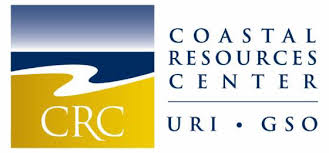Opportunities for Integrating Family Planning, Health and Nutrition Interventions Into Coastal-Fisheries Governance Agendas for Improved Food Security in Western Region, Ghana
The Coastal Resources Center (CRC) of the University of Rhode Island and its partners are implementing an Integrated Coastal and Fisheries Governance (ICFG) project in all the six coastal districts of Western Region (2009-2013), with funding from USAID Ghana. The goal of the ICFG Program is to support the government of Ghana in achieving its fisheries development objectives of poverty reduction, food security, sustainable management and conservation. CRC recognizes that it will be difficult to sustain the project’s gains in the long run, however, because of the country’s high rate of population growth. Thus it is assessing the feasibility of linking Family Planning and Reproductive Health (FP/RH) interventions with ICFG’s strategies. Experiences from other developing countries show integrated population-health-environment (PHE) approaches can create synergies and results that surpass sectoral management strategies both in terms of impact and sustainability. At the request of CRC, the BALANCED3 project sent a PHE specialist to Ghana in June 2010 to meet with ICFG stakeholders and visit project field sites in Western Region to explore needs, opportunities and possible mechanism of integration. This report summarizes the consultant’s findings and recommendations for integrating FP/RH and other health, nutrition and food security interventions into the ICFG framework. It builds upon a PHE concept that was drafted by CRC’s local implementing partner – Friends of the Nation (FoN) following an exposure visit to the Philippines where local communities have been implementing family planning in conjunction with coastal conservation strategies since 2001.
Year: 2010
Source: Coastal Resources Center




